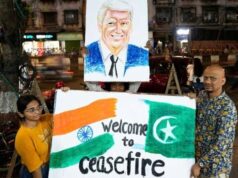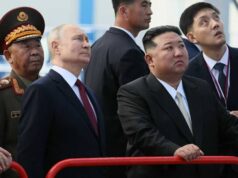US starts to feel pain from its own trade war
Pain caused by the trade war has started to haunt the US.
Agriculture was among the first to suffer. After unveiling a $12 billion package of emergency aid in July 2018, US President Donald Trump announced on May 23 a $16 billion bailout for farmers hurt by the trade war. Such measures, however, are not only inadequate, but also short-sighted.
Calling the plan a “Band-Aid,” Ohio soybean farmer Bret Davis told the New York Times that $150,000 of bailout money he received last year could hardly make up for his estimated losses – almost $250,000 – due to the trade war. Jon Tester, a senator and a working farmer, also said that “farmers want to get their check from the marketplace not from the federal government.”
It is odd that those shrewd US elites cannot even understand the simple facts: A stable market far outweighs a short-term aid. Listening to people’s real demand is way more important than simply offering them quick money.
Attempting to reap profits from China through the trade war, the US is gambling with its own peoples’ interests. The trade war is not a zero-sum game, but a “lose-lose” contest. China and the US have long been interwoven in the era of globalization. How can it be possible for the US to emerge from the trade war unscathed?
Agriculture is not the only sector affected. Several fields including retail and manufacturing are impacted and will suffer more in the future. The US has to swallow the bitter pills of the trade war, with more pain on the way.
According to US website MarketWatch, key economic sectors have slackened in the last two weeks. “Retail sales fell last month, business investment nearly dried up and manufacturers are growing at the slowest pace in nine years,” read the article published on May 25.
In this trade war launched by Washington, Beijing is a defender rather than an offender. Two notions were mentioned in Chinese public opinion discussing counterattacks against the US – the Korean War and the Protracted War. Some US media outlets have already noticed.
Nonetheless, China will by no means expand the trade war into real warfare. The two notions are merely a manifestation of China’s clear understanding of the long-term concurrent trade war and talks, and the country’s adequate preparation for mobilizing national resources.
Some hold that China’s counterstrikes against US provocation are too mild. Indeed, this is not the right time for China to change from “defensive” to the “offensive.” But that could never mean that China is a coward without weapons to fight back. On the contrary, China is waiting for an opportunity to display its strength.
China is well-prepared for a protracted war. If Washington insists on engaging in such a trade war, China will certainly not hesitate to fight back. But now, just let the US pay the painful price of its trade war.




